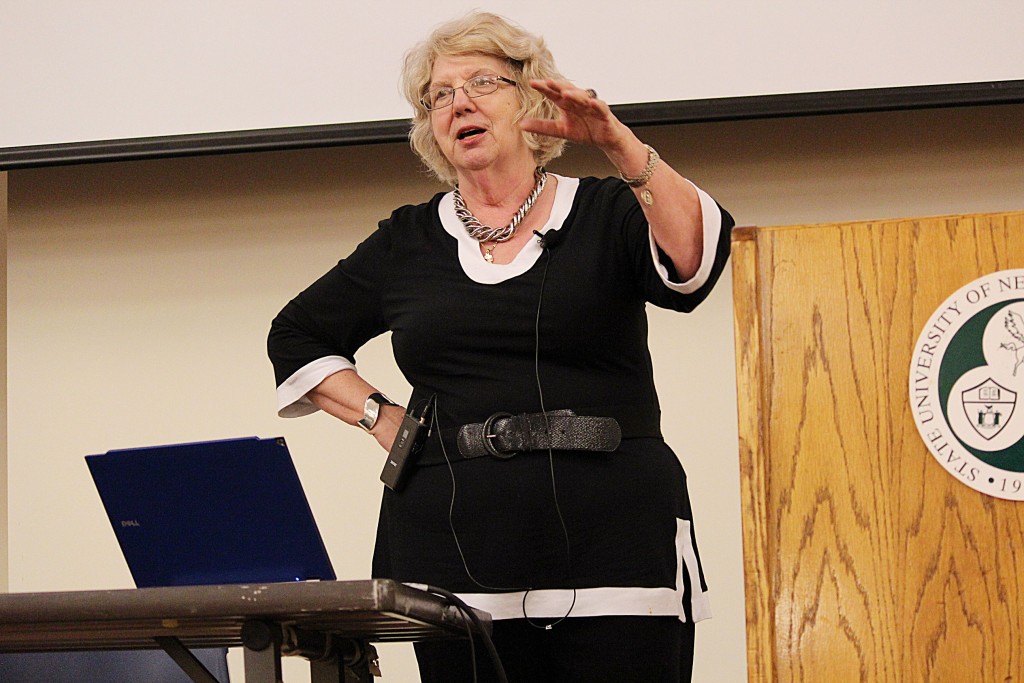
With over 50 years of suicide research under her belt, renowned psychologist Marsha Linehan visited Binghamton University to lecture on the past, present and future of suicide prevention.
Linehan, a psychologist and researcher at the University of Washington, was the inaugural speaker of the Stephen A. Lisman Annual Lectures in Clinical Psychology, established this year to honor professor Lisman’s 41 years of contributions to BU. Linehan’s experience brought students and faculty to the Mandela Room on Monday afternoon to hear her lecture, entitled “Suicide: Where We Are, Where We’re Going and What’s Keeping Us From Getting There.”
The lecture began with a series of statistics illustrating the increasing prevalence of suicide in the United States. In 2013 alone, 41,149 U.S. deaths were attributed to suicide, with around 112 deaths occurring per day, according to the American Foundation for Suicide Prevention. The current suicide rate is the highest it has been in the past 25 years, and suicide now causes more deaths in the U.S. than car accidents.
“All this data is scary,” Linehan said. “You have to ask yourself, ‘What’s the problem?’”
According to Linehan, the problems include a limited number of suicide researchers and a lack of uniformity throughout the field, with only 25.3 percent of testing measures being used having been previously published. With no research proving the benefits, Linehan also questioned whether sending highly suicidal people to in-treatment hospitals is actually doing more harm than good.
“If we don’t change these problems, we’re not going anywhere with suicide,” Linehan said. “This really is possible.”
Linehan works to treat high suicide-risk adults and adolescents, using methods such as a form of cognitive behavioral therapy called dialectical behavior therapy. Linehan said she wanted students and universities to stop keeping graduate students from engaging in high-risk suicide cases.
“At almost every single university, graduate students are not taught how to handle high-risk suicide,” Linehan said. “We simply have to stop fragilizing graduate students.”
According to Lisman, the purpose of the lecture series was to expose BU students to high-profile scientists who are doing both research and clinical work, and Linehan fits this description perfectly.
“She modeled and talked about developing ideas to do work that hadn’t been done before with populations that were under-served and feared,” Lisman said. “She’s very inspiring to graduate students in clinical psychology, as well as professionals of all stripes.”
Among those who admire Linehan is Chana Polishuk, a junior majoring in nursing. Despite not majoring in psychology, Polishuk said she had known about Linehan and her work prior to the event and looked to her as an inspiration.
“She’s done stuff to help save millions, but is still looking ahead,” Polishuk said. “That’s something we [can] all learn from.”


